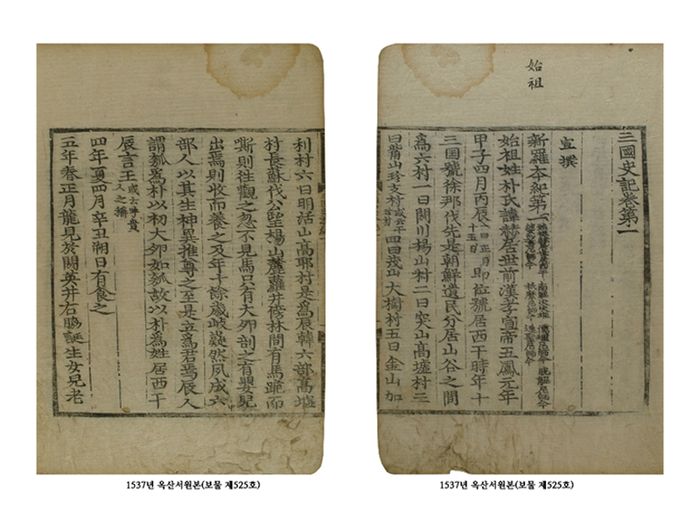(Translation) 2019 朴赫居世
| Primary Source | ||
|---|---|---|
 |
Title | |
| English | Pak Hyŏkkŏse | |
| Chinese | 朴赫居世 | |
| Korean(RR) | 박혁거세(Bak Hyeokgeose) | |
| Text Details | ||
| Genre | ||
| Type | ||
| Author(s) | 金富軾(Kim Busik) | |
| Year | 1145 | |
| Source | 三國史記(Samguk sagi) | |
| Key Concepts | ||
| Translation Info | ||
| Translator(s) | Participants of 2019 JSG Summer Hanmun Workshop (Intermediate Training Group) | |
| Editor(s) | ||
| Year | 2019 | |
Original Script
Translation
Student Translation : Olga
...Master Sobŏl, chief of Kohǒ village, was looking over the foot of Yangsan mountain. In the forest beside Najǒn [village] there was a horse [which was] kneeling and neighing. Then [he] went to look [at] it. Suddenly, there was no horse, only a big egg. [He] cut it. A baby came out of it. Then [he] took [the baby] and raised it. [When the baby] reached about 10 years of age, [he] was prodigious and matured early. His birth being mysterious and extraordinary, the people of six villages respected and promoted him. [They] set him as a king there.
The people of Chin[han] called gourds pak. At the beginning [he was found in/came out of] a big egg similar to gourd. So [they] took Pak as [his] surname. The word for king [in Chinhan language] is kǒsǒgan...
- Discussion Questions:
1. I have added quite a lot of inserts in [] to this texts compared to other translations because I felt that when translated the text does not read clearly. Please, do not hesitate to suggest other ways to translate it with less inserts (they might be a bit to excessive now) or with more neutral ones.
2. One of the inserts I made, Chin[han], particularly interests me. Should we add han here to clarify which group of people the text is referring to?
3. Should we call Najǒn a village? Should we just leave a name? Or call it Na village?
abcd